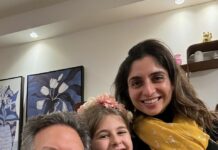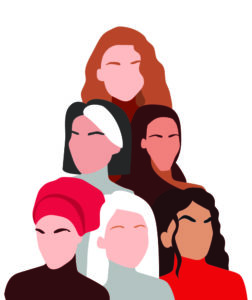
This year marks the 50th anniversary of Rabbi Sally Priesand’s graduation from the Hebrew Union College-Institute of Religion’s rabbinical school. Today, an ordinary achievement, but back in 1972, it wasn’t ordinary at all. Priesand was the first woman in American history to be ordained as a rabbi. Today, she is 75 years old.
In the decades since Priesand became the first, more than a thousand women have followed in her footsteps and become rabbis as well. The JT reached out to women rabbis across the Baltimore area to get their perspective of what this piece of history means to them.
These responses has been edited for clarity and length.
Rabbi Kim Blumenthal, rabbi at Bet Chaverim Congregation
I was drawn to the rabbinate as a teenager in the early 1990s. I was raised believing that my mother’s generation had won the battle for gender equality, and it would be years before I understood that the fight carried on and I was at the forefront of it. In my youth, I watched as male friends were courted by rabbis and movement leaders to pursue a career in the rabbinate. I, who expressed both a love of Jewish life and an acumen for Jewish learning, was largely ignored … or told to hang out on the Upper West Side of Manhattan so that I could meet and marry a rabbi.
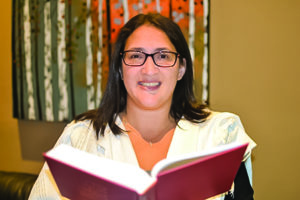
I share these reminiscences not with bitterness, but to illustrate a taste of the challenges faced by women in the rabbinate. Though trained alongside our male counterparts, we often face a gender-specific set of obstacles. Our authenticity and authority are questioned. We lack the ability to grow a beard and thus automatically be associated with wisdom. Our pregnant bellies are touched without permission. Our existence, though well-established and defined, remains a novelty to some, and an abomination to others.
Fifty years is a significant span of time. The presence of women in the rabbinate has unquestionably strengthened and enriched the Jewish world. Inviting voices to the table that had largely been absent for generations enhances our collective understanding of lifecycle, ritual and tradition. The modeling and mentorship my female colleagues provide expands the horizons of Jewish life and leadership for the next generation. The first time that I attended a service presided over by a female rabbi, I was already a rabbinical student. I feel blessed to know that the hundreds of young people that I have worked with over the years observed and engaged in a different reality. Marking the 50th anniversary of the ordination of Rabbi Sally Priesand is truly cause for celebration. Yet as we celebrate, we must listen to the women navigating this still-new path, hear their challenges and support their endeavors.
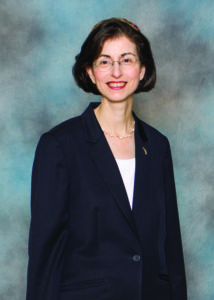
Rabbi Susan Grossman, rabbi at Beth Shalom Congregation
Being first at anything is not a calling. It is a commitment. A commitment to pursue one’s calling despite obstacles and odds arrayed against you. A commitment to proving, over and over again, one’s knowledge, skill, talent and wisdom. A commitment to weathering pushback and sabotage with grace, courage, a thick skin and a sense of humor. A commitment to supporting those coming up after you.
As the first female rabbi ordained by a recognized rabbinical school in America, Rabbi Sally Priesand means this and more to me.
I dreamed of becoming a Conservative rabbi years before being able to enter the Jewish Theological Seminary with the first class of rabbinical students to include women. Rabbinical school and ordination were just the beginning. I was ordained in 1989 when there were still few role models for what a female pulpit rabbinate could look like. As the first female pulpit rabbi, Rabbi Priesand’s success was an inspiration and a promise that I, too, could succeed in the pulpit, inspire others, positively impact my congregants and community, and help expand the role and status of women in Judaism. Just as Rabbi Priesand inspired me, I hope I have inspired others of all genders to look beyond naysayers or limiting social conditions to sustain the commitment necessary to pursue their dreams, whatever they may be.
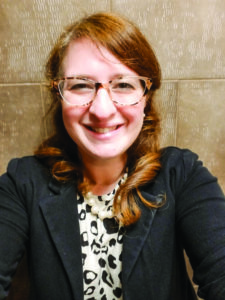
Rabbi Marci Jacobs, middle school Judaics teacher at Krieger Schechter Day School
As a teenager, incredibly active in my egalitarian Conservative synagogue here in Baltimore, someone said to me during a Shabbat morning service, “You should be a rabbi.” My immediate response was, “Women can’t be rabbis.” Despite being a Schechter graduate, where one of my teachers was both a woman and a rabbi. Despite attending an egalitarian shul where I often filled in for the (male) clergy when they were away. The notion of a woman being a rabbi — despite my beliefs, growing skill set and encounters with the real thing — just wasn’t a part of my sense of the Jewish world.
A few years later, now in rabbinical school myself, I had clearly learned that women could, in fact, be rabbis. However, my years in rabbinical school awakened me to the painful reality that, for much of the Jewish world, there were rabbis and then there were women rabbis.
I dealt with this inevitable comparison by seeking to prove my worth at every level. I took the highest level classes, studied constantly, became a “Talmud jock.” I felt a drive to be better than, just to show that I deserved to be there.
But in rabbinical school, I also learned that the presence of women in the rabbinate opened up the Jewish communal world, including the realm of halachah, to the lived experiences of women. One of my teachers, who had experienced pregnancy loss herself, wrote a paper for the Committee on Jewish Law and Standards on extending mourning practices for miscarriage and stillbirth. Other colleagues have written papers about becoming a single parent by choice and creating egalitarian wedding ceremonies, just to name a few. These women rabbis have normalized women’s experiences in the realm of halachah (Jewish law), while also participating fully in the other not-necessarily-gender-related parts of the rabbinate. From these teachers, I learned that I could bring my full self into my rabbinate.
Earlier in my rabbinic journey, I wanted to erase the distinction of being a “woman rabbi.” I wanted to be accepted just as a rabbi. In many ways that is still true. The rabbinate is enriched by members of all genders and the title doesn’t need a gender marker. However, I also proudly identify today as a woman rabbi. Just as I learned and grew from my experiences with other women who are rabbis, I know that my work, my Jewish choices, my rabbinic presence are a model for those whom I serve. And my identity as a woman matters.
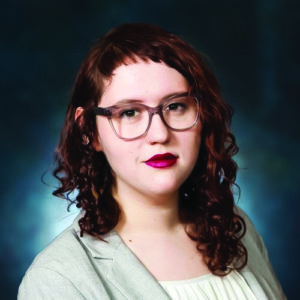
Rabbi Ariana Katz, rabbi at Hinenu: The Baltimore Justice Shtiebl
I have been profoundly shaped by the women rabbis that have taught me and led our communities in the past 50 years, most profoundly by the firsts, Rabbis Lynn Gottleib and Sally Priesand.
Women and nonbinary rabbis still face profound bias in our careers, ranging from the small ways that our authority is undermined or second guessed, to the glaringly obvious (so many “manels,” men-only panels on every Jewish topic under the sun), to the violent, such as recently reported issues in the Union for Reform Judaism around sexual assault.
My hope for the next 50 years is that we continue in Rabbi Priesand’s teaching to see more Torah taught by more women and nonbinary people and that our Jewish community will continue to be transformed by it.
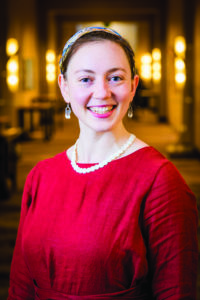
Rabbi Rory Katz, rabbi at Chevrei Tzedek Congregation
I am so grateful for Rabbi Sally Priesand and all of the brave women and other folks who were trailblazers who made it a little easier for me to follow my own path to the rabbinate. It’s still not easy to be a rabbi who doesn’t conform to the gender traditionally associated with rabbis, but I know it is much easier for me today than it would be if there weren’t people like Rabbi Sally Priesand who led the way.
Rabbi Michael Hess Webber, rabbi at Columbia Jewish Congregation
I was ordained in 2021 — one year shy of the 50th anniversary of the ordination of Rabbi Priesand. That day, I stood hand-in-hand with the other four 2021 Reconstructionist Rabbinical College graduates, each of us powerful, soulful, heart-full Jewish women. I received semicha by Rabbi Deborah Waxman (she/her) and, as I scanned the crowd at the ceremony, I saw my teachers, the rabbis from whom I had spent years learning Torah, Midrash and Gemara, and most of them were women too. I am so blessed to have grown up in a Jewish world with so many powerful female role models.
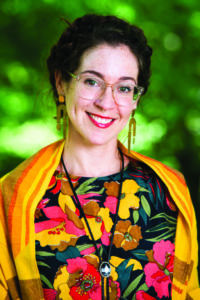
What occurs to me is that Rabbi Sally Priesand did not have this chevre of female rabbinic models and mentors, like I did. She did not have a trail to follow that had been blazed for her by her foremothers. She was the trailblazer, the one who had to carve out space on her own behalf, who had to push to be seen, heard and taken seriously. And it was in her pushing forward in a world set up to keep her down, that she set the foundation upon which I/we now stand.
Being female was not a barrier to my becoming a rabbi (although in many Jewish communities it is still the case), but I am learning that being a female rabbi does still come with its own set of challenges. In the Jewish world (and in the world at large), female and nonbinary folk still face great barriers to leadership.
We are rabbis, yes, and the work Rabbi Priesand started is not yet done. As a female rabbi in our world today, I am proud to continue living into her legacy — creating a (Jewish) world where all people, regardless of gender, know that they are powerful and capable of changing the world.



